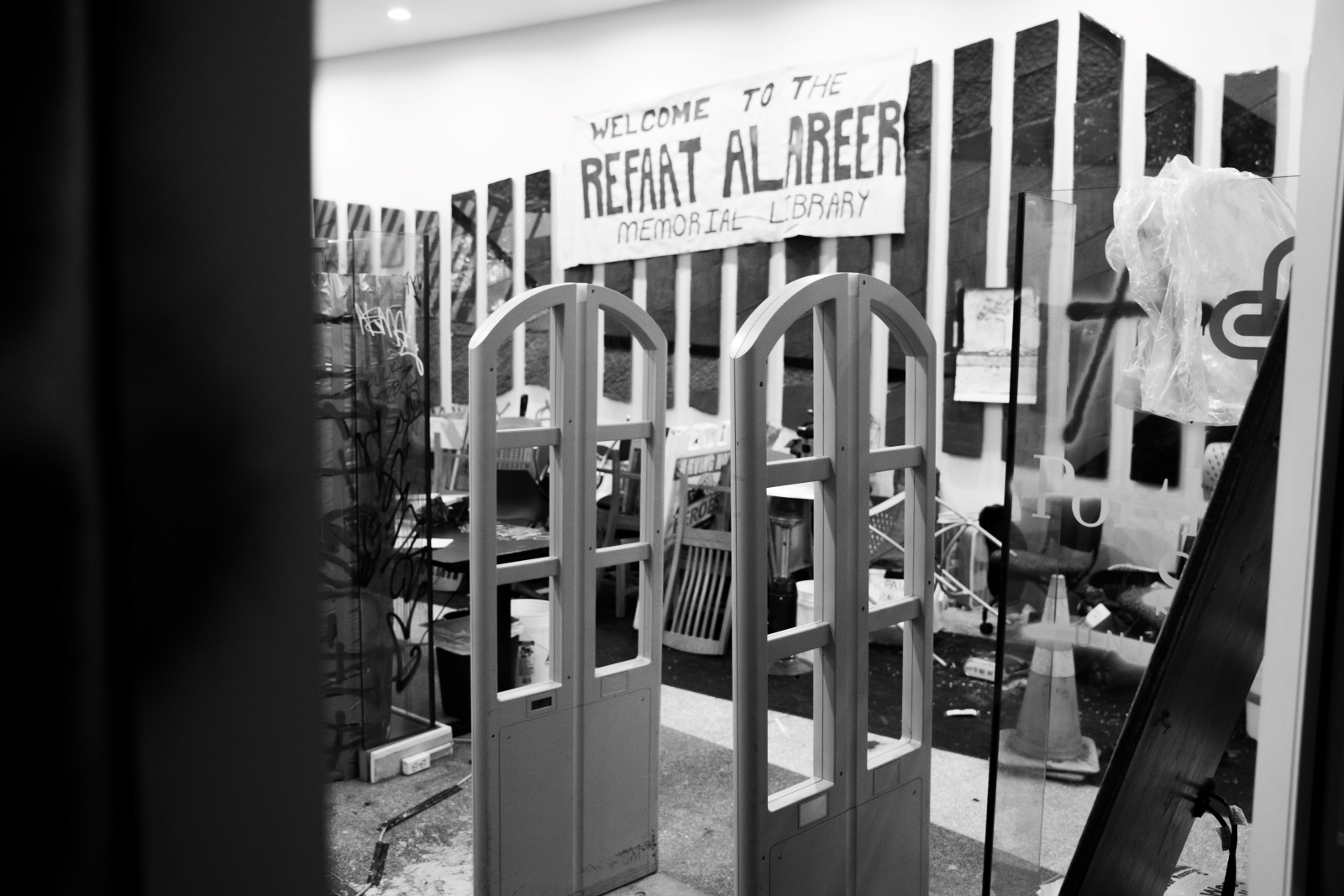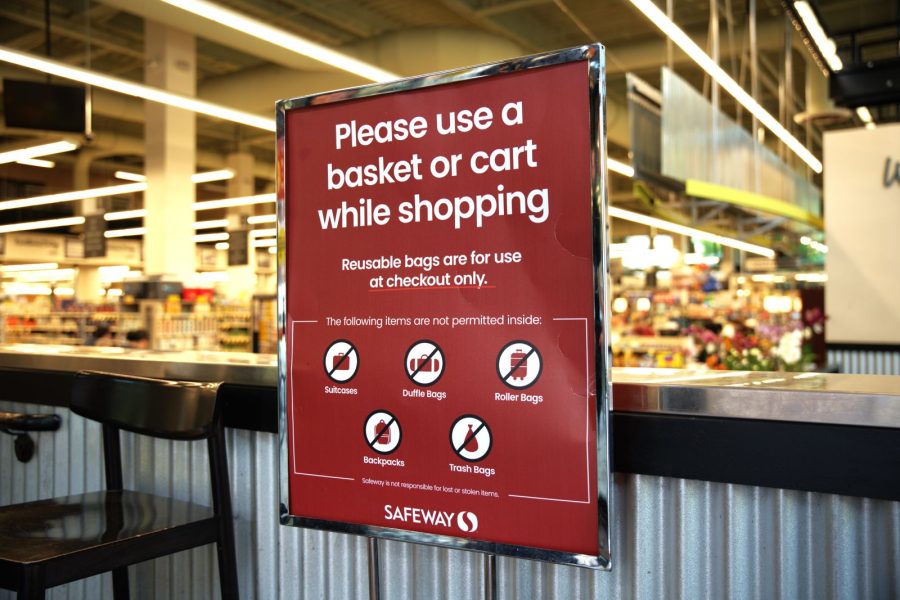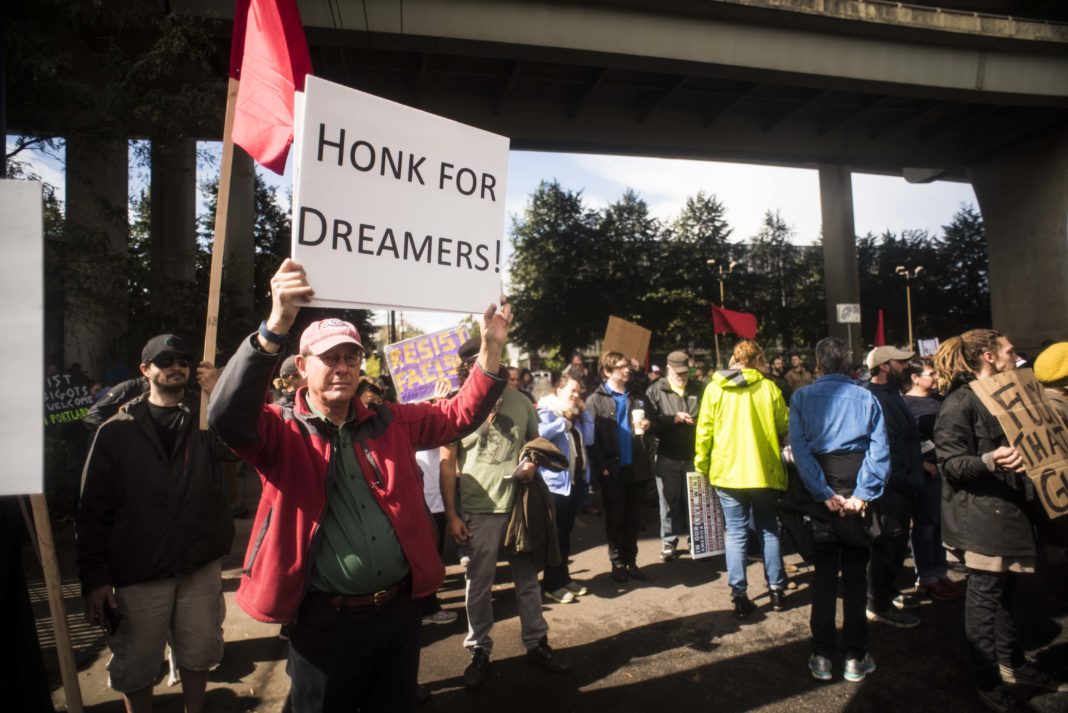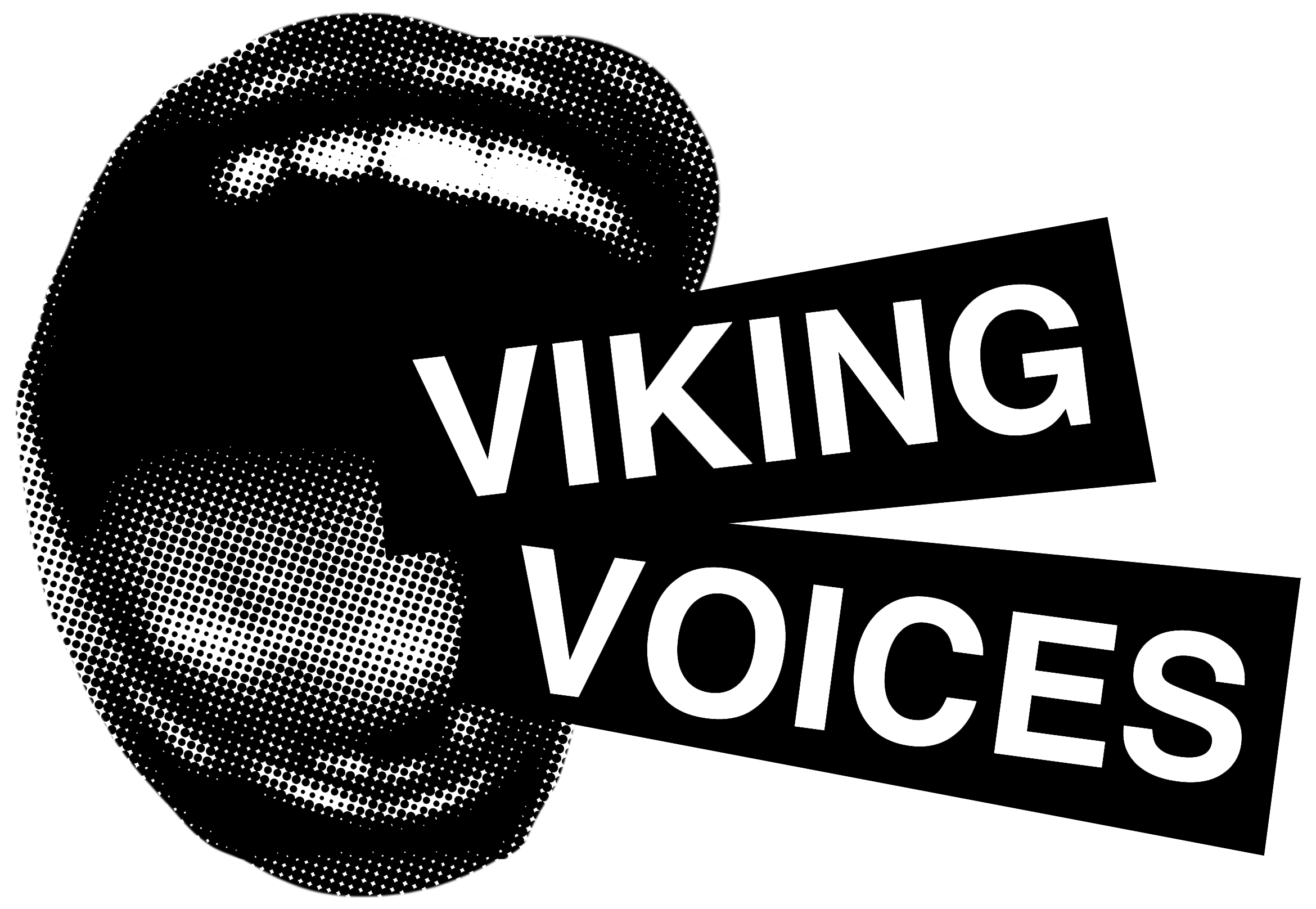Editor’s Note: The perspectives and opinions printed in this Letter to the Editor are the views of the author(s) and do not necessarily represent the positions of Portland State Vanguard or its editorial staff.
“Many of us have seen the vandalism to our library and while the cost of property damage cannot compare to the cost of human lives, this destructive protest is weighing heavily on our campus community… We have no control over what happens in the Middle East…”
– President Ann Cudd, “Regarding PSU Offer to Protesters” email, 5/1/2024
“I expect they will tolerate [the occupation], provoke internal dissent among rads and libs, [stress] undercurrents of anti-Semitism, and then have PPB [Portland Police Bureau] do a night [raid] after all the headlines have passed.”
– Me, to a friend, afternoon of the first Park Blocks encampment
So much ink has been spilled over whether property destruction, as part of political protest, is “violence” that the concern has become not only trite, but co-opted. This cooptation echoes in the remarks of PSU President Ann Cudd regarding the recent library occupation, who heads off the concern by balancing property against human life. In other times and places, Vicki Osterweil, Ta-Nehisi Coates, and others have defended the utility of things often considered “violent” in advancing protest movements. In my own co-authored work, we’ve criticized the tendency to rhetorically pit “violent” and “nonviolent” protest (and “bad” vs. “good” protestors) against one another. Doing so does the work of the state, against which such protest occurs. It’s all there—the rhetoric deployed by Cudd and the ensuing choruses of rebuttals and supports (in various shades) have become a familiar morality play, all the more frustrating for its predictability. That predictability characterizes the second quote above, from me to a friend, on Wednesday, April 24, 2024. Squint a little and it’s not far off what happened, give or take.
I want to advance a different idea here, well-rehearsed in other spaces perhaps, but seemingly absent from the main discourse attending to PSU currently. Contra Cudd’s characterization as “destructive,” the occupation of the [Millar] Library was creative and constructive and should be celebrated. (I, of course, have critiques, but these will remain internal to the movement.)
It was unequivocally an act of creation. In a stroke, through the power of a collective people’s General Assembly, the library named for PSU’s second president, Branford Price Millar (a person about whom I can find little), was renamed the Refaat Alareer Memorial Library after a beloved (and martyred) Palestinian professor from Gaza who vowed to fight off the Israeli invasion forces with a dry erase marker. Whatever Millar’s merits as a human, I’m certain he never crafted anything so beautiful and haunting as Professor Alareer’s last poem, “If I Must Die.”
Moreover, it was an encampment—an autonomous zone. Many people have never seen a liberatory occupation, but it is both a creative and constructive enterprise. It contained the stuff of life, growth, and strength: collected medical supplies and care; food organized, stored, made available to all; effective external-facing defense; spaces for recouping mental health; community building through art, poetry, and free expression; and, yes, even a mini-library full of informational ‘zines on practical and theoretical matters, attractive apparently across demographic, as present were those with disabilities, queer, trans, BIPOC, and white folks. They fought off counter-protests, armed riot soldiers, and self-appointed peace-police; many escaped gloriously to fight again another day. My good professorial colleagues, I know you, and you could not have organized so creatively and so effectively so quickly, nor had the temerity to hold the line against such repression. (Admin, of course, would have selected a Task Force, written a lengthy report, and forgotten to schedule the follow up meeting.) Colleagues, our students are braver than we are, smarter than we are, more moral, and eminently more practical. They are creative, constructive, and courageous. And they produced a turnout that [the] Faculty Senate, PSU-AAUP, and the Presidential Speaker Series can only envy.
The opposition on the other hand—PSU Administration, Portland Police, and, I assume, at least some FBI (Federal Bureau of Investigation) and HSI (Homeland Security Investigations) observers—are both boring and destructive. My sadly accurate thoughts above regarding the opposition response are pedestrian because they are cribbed from a well rehearsed playbook. These patterns aren’t new or interesting and I detail them with regard to anti-police protests here. The playbook is old—co-opting moderates, splitting movements, negotiating cynically, maintaining a veneer of legitimacy—and differs little from our imperialistic counterinsurgency efforts overseas. The similarities between smothering domestic protest and military counterinsurgency ops do not stop at ethos, but extend to technology, funding, and personnel.
Such authority has no new ideas. It has no answers except destruction and no desires except maintaining power and control. It has no interest in sharing power, however much politicians and university presidents pretend to negotiate. Cudd’s admission that “We have no control over what happens in the Middle East” just says the quiet part out loud. The United States absolutely participates in and funds genocide, but you and I have no lawful control over this whatsoever, no matter what pretenses we harbor, unless we interrupt and disrupt. Our students understand this intimately—they have seen opportunity dry up, costs soar, racism reinvigorated, bodily freedom evaporate, a virus ravage the poor, evictions multiply, reactionary violence on the march, and now they watch a US-funded and -supplied genocide unfold in real time. Their response? To shake off the mental bonds of a University education—which tells them to vote for professional politicians, call their Congressperson’s temp staffer, write a blog, and start a nonprofit—and instead construct a joyful and creative autonomous community to force boycott, divestment, and sanctions. Until the domestic portion of our military industrial apparatus destroyed it—as it will eventually destroy us all.
The power of protest is not, as I think the liberal establishment believes, to persuade power to act. Power has no time for you or interest unless you are producing profit; progress made is usually temporary as we proceed inevitably towards unending crises of capitalism that provoke ever more fascistic reactions. The power of protest is that it reminds us that we are free. It is a space where we bump up against others, act and react according to our morals and instincts as conditions change, and work together towards common goals, unbound by the internal surveillance that strangles our souls during so-called normal life. Some of us, my colleagues, are unable to remember this, if we ever knew it. But the students—constructive, creative, brave—will teach us all before the end.
Free Palestine. And free all of us.






